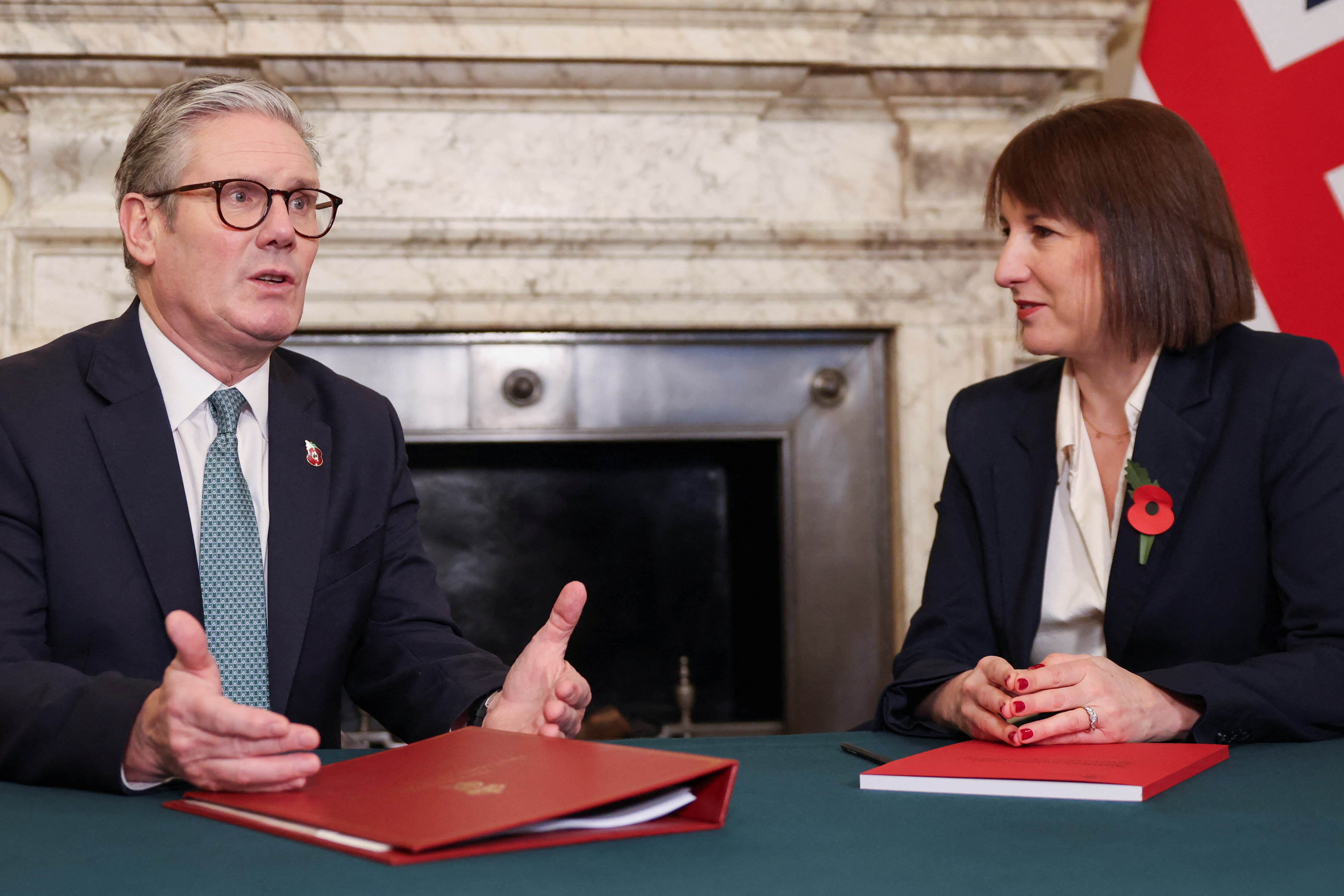This huge Budget gamble by Starmer and Reeves rests on one ambition – economic growth
Editorial: For their partnership to survive and thrive, Keir Starmer and Rachel Reeves must swiftly prepare the ground for recovery

The most important relationship at the top of British politics is that between a prime minister and their chancellor. When they fall out – over policy, over personalities, or both – it rarely stays confidential or ends well, for either person. When the partnership works seamlessly and harmoniously, the dynamic becomes symbiotic.
A premier traditionally backs their chancellor in Whitehall against the urgent claims of the big spending departments and offers covering fire in the national debate; in return, the record of a successful chancellor will reflect well on the judgement and reputation of the person who gave them the most important job in government.
Thus far, the Starmer-Reeves relationship looks solid, with none of the kind of tensions, for example, that grew up between Tony Blair and Gordon Brown and so disfigured the New Labour years. The new team, it seems, both share the same social democratic outlook, and pretty much agree on everything. Rachel Reeves doesn’t pretend to be a rival to Sir Keir Starmer, and he defers to her economic expertise.
In an early test of solidarity, the duo recently faced down a minor rebellion by three ministers – Angela Rayner, Shabana Mahmood and Louise Haigh, at housing, justice and transport respectively – understandably distressed at their funding settlements with the Treasury. No 10 and the Treasury prevailed.
The Starmer-Reeves axis has also weathered the storm of cutting the pensioners’ winter fuel payments, and survived the blizzards of questions about what exactly constitutes “working people” – the Budget will, at last, settle that debate.
Sir Keir has been unstinting in his support for Ms Reeves, most recently in a prelude speech to her Budget, in which he warned the country – and, more pointedly, critics in his own party – that they must “embrace the harsh light of fiscal reality”. In other words, there are “better days ahead”, but only after the foundations for fiscal stability have been laid down.
The prime minister, therefore, has more interest than most in the Budget, both as a statement of fiscal intent, but also in its setting out of the path to progress for the Starmer administration. It should be the definitive statement of aims and objectives, and something that, even if it’s not popular, can at least command respect as a coherent argument.
Sir Keir certainly needs such a boost. As The Independent’s latest polling reveals, the prime minister’s approval ratings – never that high – have collapsed spectacularly since the general election, and more precipitously than any predecessor in modern times. Obviously, these are early days, and Sir Keir and his party entered government with relatively modest mandates, exaggerated in the Commons by the electoral system.
Yet that is even more reason for Sir Keir and his chancellor to be careful with their political capital. They need to be preparing the political ground for an eventual recovery by getting the most difficult decisions done earliest, with the benefits flowing through sooner, in order to help sustain that narrative given to the voters of “pain now, gain later”.
If the Budget and its associated plans for spending, investment and reform do indeed boost economic growth and result in demonstrably improved public services, then the government may in time look forward to a second term to continue its “decade of renewal”. Sir Keir may even end up as one of those very rare leaders who is more popular as prime minister than they were as leader of the opposition.
If so, then the rocky first 100 days of this government will feel very distant by the time of the next election, with steady and low inflation and interest rates complementing rising living standards and shorter queues in the NHS.
In personal terms Ms Reeves, too, will be in a position to feel proud of her record, and, unlike almost all of her predecessors, actually receive the thanks and praise of the wider Labour movement as well as her boss. None of that, however, is preordained, and if she and Sir Keir fail to secure that investment and economic growth in rapid time, they will find it hard to survive having to enact another Budget as harsh as this one looks to be.
To a large degree, Sir Keir and Ms Reeves will sink or swim together. There’s every sign that, at the moment, they understand and accept that central fact of life at the political summit.
Join our commenting forum
Join thought-provoking conversations, follow other Independent readers and see their replies
Comments
Bookmark popover
Removed from bookmarks